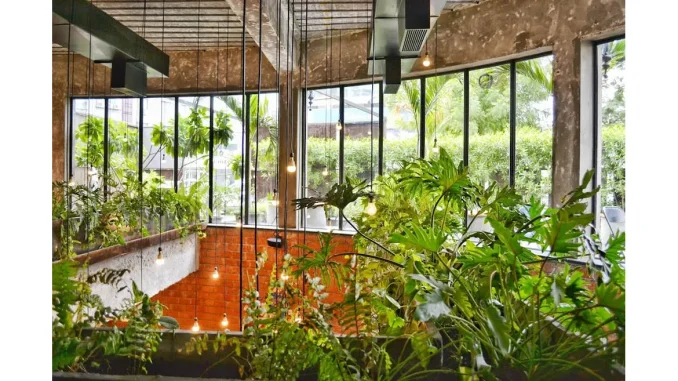
In the ever-evolving landscape of the United Kingdom’s construction industry, the pursuit of sustainable practices has ascended to a position of paramount importance. Developers and businesses continually face the intricate challenge of balancing energy efficiency with construction costs, all while aiming to create structures that are environmentally responsible. This drive for sustainability is propelled by an increasing emphasis on green building certification and the integration of energy-efficient technologies, making the adoption of green practices and adherence to energy efficiency regulations more urgent than ever.
Read more about sustainable development.
At the heart of this sustainable building revolution lies SAP (Standard Assessment Procedure) testing, a pivotal tool that has emerged as a cornerstone in the success of green building projects across the UK. SAP assessments are instrumental in evaluating building design, validating energy performance, and ensuring that buildings meet projected energy targets. These assessments delve into various aspects such as energy efficiency considerations, ventilation strategies, building orientation, and design optimisation, thereby maximising energy performance. Furthermore, they indirectly encourage the use of eco-friendly materials and water-saving strategies, contributing to a more sustainable built environment.
SAP testing transcends the mere fulfilment of energy efficiency standards; it extends its reach to support sustainability objectives that go beyond regulatory requirements. The robust energy performance data generated by SAP assessments translates into tangible benefits for green building certification processes. For instance, strong energy performance showcased in Energy Performance Certificates (EPCs) can earn valuable points in BREEAM (Building Research Establishment Environmental Assessment Method) sustainability assessments. This underscores the importance of incorporating energy efficiency metrics into the certification framework. The detailed energy modelling derived from SAP assessments is crucial in earning BREEAM credits, further emphasising the critical role of data-driven assessments in steering sustainable building projects towards success.
As energy efficiency regulations continue to evolve, SAP testing, in collaboration with expert assessors, serves as a cornerstone in the creation of environmentally responsible buildings aligned with sustainability goals. By providing actionable insights for strategic decision-making, SAP assessments empower stakeholders to optimise energy performance, mitigate environmental impact, and drive progress towards a more sustainable future.
The significance of SAP testing transcends mere compliance with energy standards; it emerges as a transformative force in overcoming challenges encountered in green building endeavours. Collaborating with seasoned assessors, such as those at Focus360, equips developers with tailored recommendations and expert consultations to advance their sustainable building aspirations. The adept team at Focus360 possesses a comprehensive understanding of green building intricacies and regulatory frameworks, offering invaluable support in achieving sustainability milestones and enhancing the enduring value of building assets.
Each green building project presents a unique set of objectives and constraints that necessitate customised energy assessments. SAP testing empowers decision-makers to make informed choices regarding energy efficiency and environmental impact, fostering the development of high-performance buildings that embody sustainability principles. Engaging with Focus360 enables developers to harness the benefits of SAP testing and leverage data-driven insights to propel their sustainability initiatives towards fruition.
The transformative power of SAP testing can be witnessed across various stages of a building project. From the initial design phase, where SAP assessments provide crucial feedback on energy performance, to the construction phase, where real-time data guides the implementation of energy-efficient practices, SAP testing ensures that sustainability remains at the forefront. Post-construction, SAP assessments continue to play a vital role in monitoring and optimising building performance, ensuring that energy targets are not only met but exceeded.
Moreover, SAP testing contributes significantly to the financial viability of green building projects. By providing accurate predictions of energy consumption and potential savings, SAP assessments help developers and investors make informed financial decisions. This not only enhances the economic feasibility of sustainable projects but also attracts investment from stakeholders who prioritise environmental responsibility.
The role of SAP testing in driving sustainable construction success is further amplified by its integration with advanced technologies. The advent of smart building technologies, such as Internet of Things (IoT) devices and Building Information Modelling (BIM), has revolutionised the construction industry. When combined with SAP testing, these technologies enable real-time monitoring and optimisation of building performance, creating a synergy that propels sustainability efforts to new heights.
By integrating SAP assessments into project workflows, developers and businesses can elevate energy performance, curtail environmental impact, and craft buildings that epitomise the ethos of sustainability. With the escalating demand for green building innovations, SAP testing stands as a driving force of ingenuity and excellence in the construction sector, paving the way for a more sustainable built environment. For developers and businesses keen on embracing sustainable construction practices, engaging with experts like Focus360 can unlock the full potential of SAP testing. Focus360’s holistic approach to SAP assessments, combined with their deep understanding of green building principles, ensures that projects not only comply with regulations but also set new benchmarks in sustainability.
In summary, the power of SAP testing in driving sustainable construction success in the UK cannot be overstated. As the construction industry continues to evolve, the integration of SAP assessments into the building process will remain a critical component in the journey towards a greener future. By leveraging the insights and expertise provided by SAP testing, developers and businesses can confidently navigate the complexities of sustainable construction, ultimately shaping a built environment that is both environmentally responsible and economically viable.


Be the first to comment